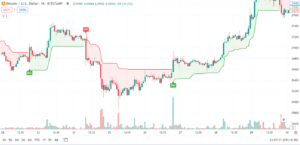Role of a Broker in the Share Market – In the world of investments and trading, brokers play a crucial role in facilitating transactions and providing valuable services to investors. A broker acts as a middleman between buyers and sellers, executing trades on behalf of their clients. This article aims to explore the role of a broker in the share market, shedding light on their responsibilities, benefits, and the impact they have on investors.
Role of a Broker in the Share Market
What is a Share Market?
The share market, also known as the stock market or equity market, is a platform where individuals and institutions can buy and sell shares of publicly traded companies. It serves as a crucial component of the global financial system, enabling capital formation and wealth creation. Investors participate in the share market with the goal of generating profits by buying shares at a lower price and selling them at a higher price.
The Role of a Broker
A broker acts as an intermediary between buyers and sellers in the share market. Their primary responsibility is to execute trades on behalf of their clients. They facilitate the buying and selling of shares, ensuring that the transactions are completed efficiently and in accordance with the market regulations. Brokers can be individuals or firms licensed to operate in the share market.
Brokerage Firms and their Services
Brokerage firms are financial institutions that provide a wide range of services to investors. They act as a one-stop solution for all the trading and investment needs of their clients. Apart from executing trades, brokerage firms offer various services such as market research, investment advice, risk management, and portfolio diversification strategies.
Execution of Trades
One of the key functions of a broker is to execute trades on behalf of their clients. When an investor wants to buy or sell shares, the broker places the order in the market and ensures that the transaction is carried out at the best available price. They have access to sophisticated trading platforms and systems that enable them to execute trades quickly and efficiently.
Market Research and Analysis
Brokers conduct extensive market research and analysis to provide valuable insights to their clients. They analyze market trends, company fundamentals, economic indicators, and other relevant factors that can impact the share prices. By staying informed about the latest developments in the market, brokers assist investors in making well-informed investment decisions.
Providing Investment Advice
Brokers often provide investment advice to their clients based on their knowledge and expertise. They assess the risk appetite, financial goals, and investment horizon of the clients and recommend suitable investment opportunities. Brokers can suggest specific stocks, mutual funds, or other financial instruments that align with the client’s investment objectives.
Risk Management and Portfolio Diversification
Risk management is an essential aspect of investing, and brokers play a significant role in helping investors manage their risks. They assist clients in diversifying their investment portfolios by allocating funds across different asset classes and sectors. By spreading the risk, brokers aim to minimize potential losses and maximize returns.
Client Relationships and Communication
Building strong client relationships is a vital aspect of a broker’s role. They maintain regular communication with their clients, providing updates on market trends, investment performance, and any changes in regulations that may impact their investments. Effective communication helps brokers understand their clients’ needs and tailor their services accordingly.
Regulatory Compliance
Brokers operate within a highly regulated environment to ensure fair and transparent trading practices. They must comply with various regulatory requirements and guidelines set by the governing authorities. By adhering to these regulations, brokers provide a secure and trustworthy platform for investors to participate in the share market.
Brokerage Fees and Costs
Brokers charge fees and commissions for their services, which may vary depending on the type of transactions and the level of service provided. It is essential for investors to understand the fee structure before engaging a broker. While lower fees can be attractive, it is crucial to consider the overall value and quality of services offered by the broker.
Benefits of Using a Broker
Using a broker offers several benefits to investors. They provide expertise, market insights, and access to a wide range of investment opportunities. Brokers also save investors time and effort by handling the administrative aspects of trading. Moreover, brokers can assist novice investors in navigating the complexities of the share market and guide them towards making informed investment decisions.
Choosing the Right Broker
Selecting the right broker is crucial for investors to have a successful trading experience. Investors should consider factors such as reputation, reliability, service quality, fees, and the range of services offered. It is advisable to compare multiple brokers and read reviews before making a decision. Additionally, investors should evaluate their own investment goals and preferences to find a broker that aligns with their requirements.
Conclusion
In conclusion, brokers play a pivotal role in the share market. They act as intermediaries, executing trades, providing investment advice, and offering a range of services to investors. Brokers contribute to the efficiency and liquidity of the market, enabling investors to participate with confidence. By leveraging the expertise and resources of brokers, investors can navigate the complexities of the share market and work towards achieving their financial goals.
FAQs (Frequently Asked Questions)
- What is the difference between a full-service broker and a discount broker?
- How can I find a reliable broker for share market investments?
- Do brokers guarantee profits in the share market?
- Can I trade in the share market without a broker?
- What are the risks associated with investing in the share market?




